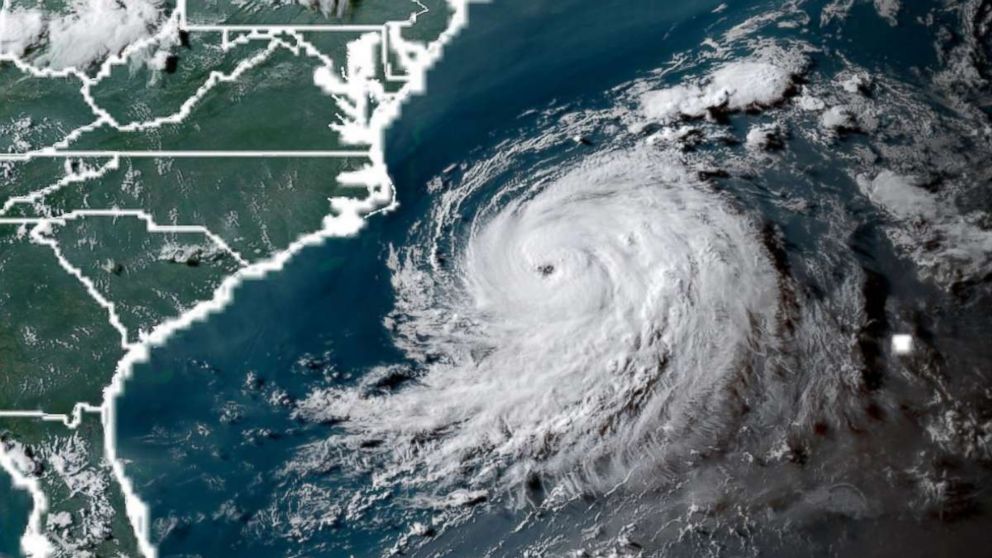The latest update on Hurricane Chris is crucial for understanding its impact and trajectory. As this weather phenomenon continues to evolve, it's important to stay informed about the developments surrounding it. Hurricane Chris, which has garnered significant attention due to its intensity and potential threats, presents a unique case for meteorologists and residents alike. This article will provide a comprehensive overview of Hurricane Chris, including updates, historical context, and safety measures.
In this article, we will delve into the various aspects of Hurricane Chris, including its formation, path, and the effects it has had on affected areas. Understanding the dynamics of such hurricanes is essential, especially for those in regions prone to severe weather events. This piece aims to equip you with the knowledge necessary to navigate the challenges posed by hurricanes.
As we tackle the complexities of Hurricane Chris, we will also explore the broader implications of hurricanes on climate, infrastructure, and community resilience. Whether you're a resident in a hurricane-prone area or just interested in understanding these natural events better, this article is designed to provide valuable insights and actionable information.
Table of Contents
- 1. Hurricane Chris Biography
- 2. Hurricane Chris Latest News
- 3. Hurricane Chris Path and Impact
- 4. Hurricane Chris Safety Measures
- 5. Hurricane Chris Historical Context
- 6. Hurricane Chris Community Response
- 7. Hurricane Chris Climate Change Implications
- 8. Hurricane Chris Conclusion
1. Hurricane Chris Biography
Hurricane Chris was first identified in mid-July of 2023 and quickly gained strength as it moved through the Atlantic Ocean. Over the course of its development, it reached Category 3 status, prompting warnings and preparations in various coastal regions. The hurricane's rapid intensification showcased the volatile nature of tropical storms and the importance of timely updates from meteorological services.
Data Personal and Biodata
| Attribute | Details |
|---|---|
| Name | Hurricane Chris |
| Date of Formation | July 12, 2023 |
| Peak Intensity | Category 3 |
| Current Status | Active |
| Regions Affected | Eastern Seaboard |
2. Hurricane Chris Latest News
As of the latest reports, Hurricane Chris continues to pose a threat to coastal regions. The National Hurricane Center (NHC) has issued warnings for several states, urging residents to remain vigilant. The storm's current path indicates potential landfall along the East Coast, emphasizing the need for preparedness.
- Latest wind speeds recorded: 100 mph
- Projected landfall: July 15, 2023
- Areas under warning: North Carolina, Virginia, and Maryland
3. Hurricane Chris Path and Impact
The path of Hurricane Chris has been closely monitored by meteorologists. Initially, it moved westward but has since shifted towards the northeast, increasing concerns about its impact on populated areas. The hurricane's wind and rain can lead to flooding, power outages, and property damage.
Here are key statistics regarding the potential impact:
- Expected rainfall: Up to 10 inches in some areas
- Storm surge potential: 3-5 feet along the coast
- Evacuations ordered: In several counties along the eastern seaboard
4. Hurricane Chris Safety Measures
Safety is paramount during hurricanes. Residents in affected areas are advised to take the following precautions:
- Have an emergency kit ready, including food, water, and first aid supplies.
- Stay updated with local news and weather reports.
- Follow evacuation orders promptly.
- Secure your property by boarding windows and securing outdoor items.
5. Hurricane Chris Historical Context
Understanding Hurricane Chris requires a look at historical hurricanes that have impacted the region. The Atlantic hurricane season typically runs from June 1 to November 30, with varying levels of activity each year. Historical data shows an increase in hurricane intensity, likely linked to climate change.
Notable hurricanes in history include:
- Hurricane Katrina (2005)
- Hurricane Sandy (2012)
- Hurricane Florence (2018)
6. Hurricane Chris Community Response
Communities affected by Hurricane Chris have mobilized to prepare for the storm. Local governments are coordinating evacuation plans and providing resources for residents. Community organizations are also stepping in to offer assistance.
Key community responses include:
- Emergency shelters opened in various locations.
- Community outreach programs for vulnerable populations.
- Collaboration with national organizations for disaster relief.
7. Hurricane Chris Climate Change Implications
The increasing frequency and intensity of hurricanes like Chris raise concerns about climate change. Research indicates a correlation between rising ocean temperatures and the strength of tropical storms. The implications of these changes are profound for coastal communities and ecosystems.
Experts suggest the following measures to address climate change:
- Investing in renewable energy sources.
- Enhancing infrastructure to withstand severe weather.
- Promoting sustainable practices in communities.
8. Hurricane Chris Conclusion
In conclusion, staying informed about Hurricane Chris is essential for ensuring safety and preparedness. As the storm continues to develop, residents are encouraged to follow safety measures and remain updated with reliable information. Remember, the best way to face such challenges is to be proactive and well-prepared.
We invite you to share your thoughts in the comments below and encourage others to read this article for valuable insights on Hurricane Chris. Your safety is our priority, and we hope this information helps you navigate through this weather event.
Thank you for visiting our site, and we look forward to bringing you more updates and information in the future!
Article Recommendations
- Gal Gadot Dan P Diddy
- Kim Erome
- Unveiling The Allure Hilary Duff Nude And The Art Of Celebrity Vulnerability


